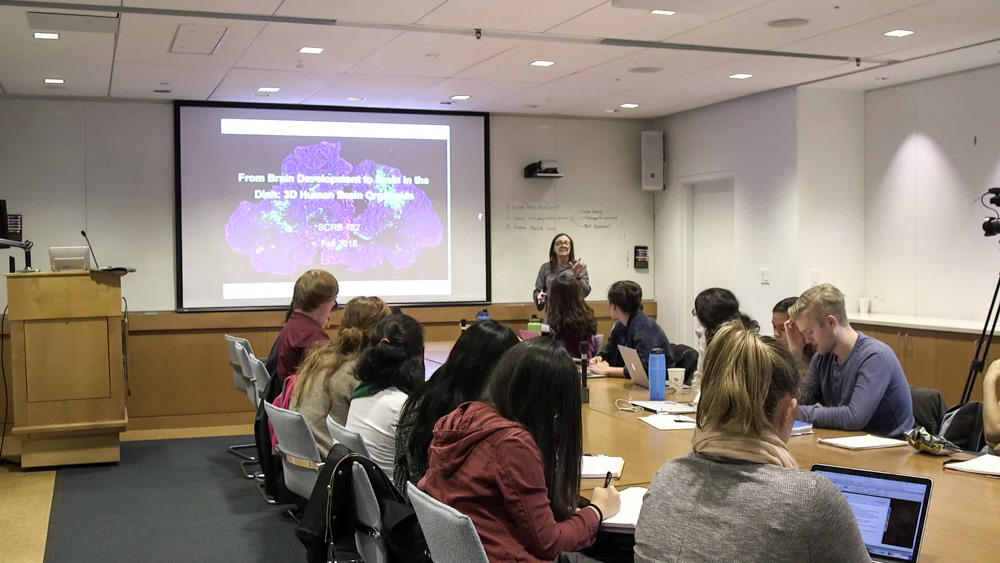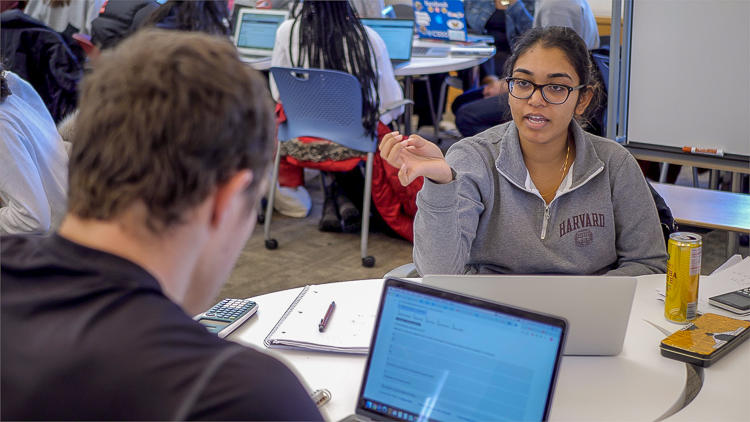Most academic fields require close, textual analysis. Despite this, some instructors lecture entire class sessions without affording students focused periods for practicing and sharpening their analytical skills. Understanding how crucial it is that students leave his course with particular skills in their repertoire, Brett Flehinger devotes significant portions of class time to hands-on engagement with analysis or, what he calls, “the fundamental historian’s task,” seeking to strengthen students’ discipline-specific skills through guided practice. In this video, Flehinger hands out new, short texts for students to analyze together in class to ensure that by the end of the semester they’ve practiced “hundreds of acts of analysis.”
Dedicating class time to repeated practice with key skills
Instructor
Brett Flehinger, Lecturer on History
Student Group
Undergraduate
School
Harvard College
Course
American Populisms: From Thomas Jefferson to the Tea Party + Trump
Group Size
38 students
- Incorporate short analytical exercises during class so students have multiple, low-stakes opportunities to practice analysis. Quick exercises allow students to practice analytical skills in confined time frames and with peer and instructor support.
- Break students into groups to close read and analyze portions of a text. Short texts allow for more focused analysis and allow students to more easily hear classmates’ approaches to analysis of similar texts.
- Share exemplars of written analysis to improve students’ analytical skills. Evaluating peer writing (and later, a student’s own writing) according to a rubric can help students understand the building blocks of strong analytical writing.
- Analysis of expert performance provides evidence of the importance of deliberate practice to optimize skill development (Ericsson, 1993). Expert performance is explained by prolonged engagement in deliberate activities.
- According to Bransford, engaging in deliberate practice promotes learning. Deliberate practice is characterized by heightened focus while being engaged in effortful activities designed to reach a desired objective or outcome (2000).
- Knowledge taught in multiple contexts is more likely to support transfer than knowledge taught only in a single context (Bransford et al., 2000)
- “The Capture” is a pedagogical activity explained by Vanderbilt’s Center for Teaching that provides a quick, clear structure to help students practice analytical thinking on secondary texts and can be adapted based on the amount of time and classroom structure
- University of Iowa’s Office of Teaching, Learning, and Technology spotlights a professor who works at “Developing Critical Thinking Through Peer Review” to help students improve their writing and become familiar with professional norms
- In another Instructional Moves video, Professor Paola Arlotta describes how she creates space in every class for repeated practice on key course skills




